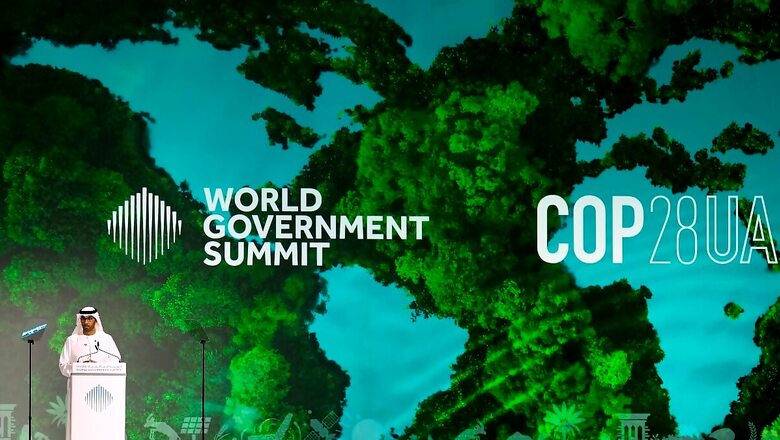
views
After debating for decades, the upcoming UN Climate Change Conference (COP28) could finally set the ball rolling on the Loss and Damage fund. But, operationalising the fund is likely to be a strenuous task with rich and developed countries still sparring over who will compensate the vulnerable communities for the climate change.
Set up at Egypt’s Sharm El Sheikh last year, the fund is expected to support developing countries that are particularly vulnerable to severe impacts of climate change like droughts, floods and other disasters. After five rounds of rocky negotiations, the Transitional Committee finally reached consensus in Abu Dhabi this month on a set of recommendations to be taken up for discussion at COP28. However, crucial questions remain.
The fund is expected to be hosted by the World Bank with an independent secretariat to monitor it and governed by a 26-member board, including 12 members from developed countries. But it is still unclear which countries will be eligible to access it, and who will eventually pay.
“It’s not the World Bank money, just that there’s a World Bank trustee, banker, and a secretariat. But the money is the funds’ money, and the board can set its own eligibility and rules on who gets it and who doesn’t,” said Professor Avinash Persaud, Special Envoy to the Prime Minister of Barbados on Investment and Financial Services, at a discussion hosted by Climate Trends.
However, rich nations are yet to fulfil their $100 billion pledge, and remain evasive over any definite support to the L&D Fund. Under the current recommendations, no country is legally obliged to pay for the fund, thus failing to provide any assurance to vulnerable communities that their financial needs for coping with the climate crisis will be met.
“The rich country’s budgets for aid are not going up, they are shrinking, they are double counting and reclassifying. That is why this $100 billion pledge is also way out of date now, we now know we need $2.4 trillion per year in developing countries. So the loss and damage funds is a very important historic event,” added Prof Persaud.
RAISING AMBITION WITHOUT FINANCE MEANINGLESS
The UAE presidency is determined to close the two-weeks long conference with a first-ever Global Stocktake this December that urges enhanced ambitions. However, experts unequivocally highlight that raising ambition would remain an empty exercise without adequate finance to support it. “It is important to understand the motivation behind the Global Stocktake (GST) process. It is a formal point for the whole world to collectively reflect and take stock for ratcheting up ambition,” said Vaibhav Chaturvedi, Fellow, Council on Energy Environment & Water (CEEW).
“But the biggest tussle is who will pay for it? So, meaningful delivery of finance, not just for Loss and Damage, but also for mitigation will be central to the talks. India will definitely look to raise the unfulfilled pre-2020 promises made by the developed countries.”
A key part of the 2015 Paris Agreement, GST will be done every five years to assess the global progress on meeting climate goals, followed by a call to raise ambition. The countries will be urged to step up ambition in their next round of NDCs due in 2025.
According to Alok Kumar, former principal secretary, Ministry of Power, India has not been very aggressive on demanding climate finance at various platforms. “Meeting the energy demands is critical for a country like India. Then, we have to plan for 2030. If we accelerate renewable energy, then beyond a point there are some technical issues like storage. Thirdly, we need finance to develop the green energy corridors. Fourth, India should raise the affordability issue and supply chain of critical minerals at the international platform. Fifth, the technology is available but the issue is at what cost? Therefore, India needs to talk about finance and critical minerals when we talk of accelerating renewable energy,” he said.
The two-week annual United Nations conference on climate change (COP28) is set to begin in the UAE on November 30.
















Comments
0 comment